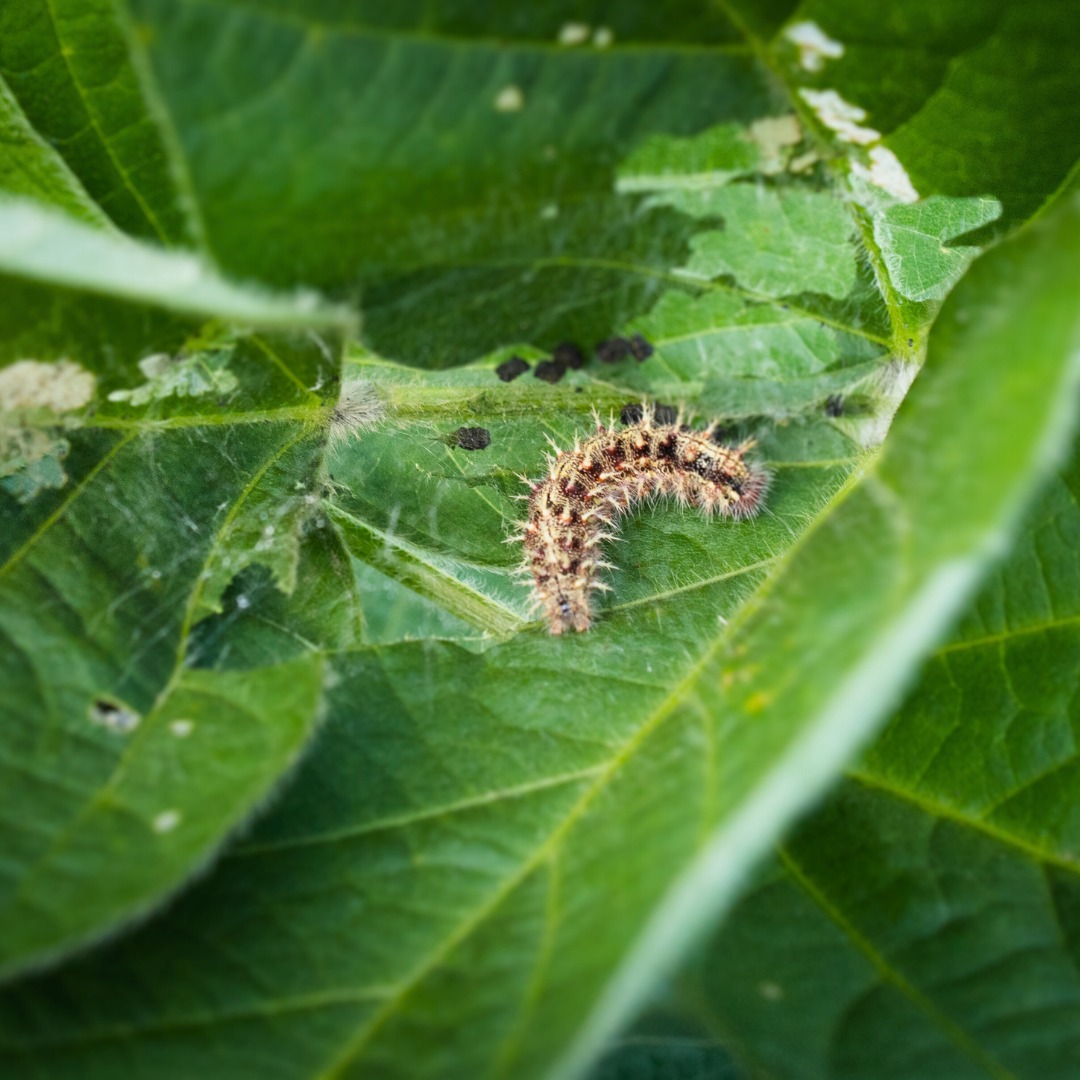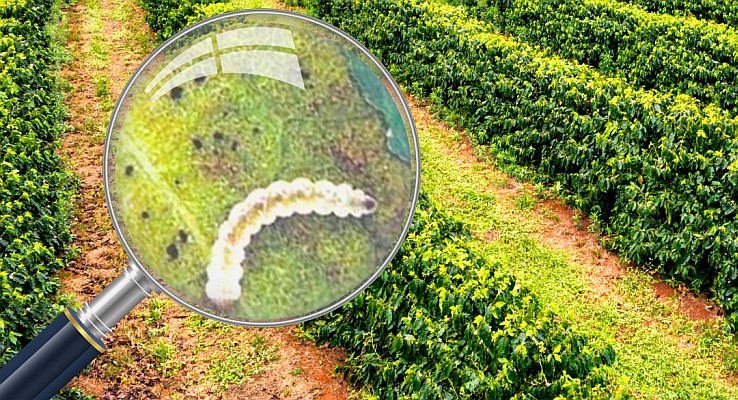With each harvest, pressure increases for more efficient and sustainable agriculture and this necessarily involves reducing the use of pesticides. In large-scale agriculture, production without the use of these products is unfeasible due to climate and soil conditions, however there are some efficient and natural alternatives to help the producing class reduce the use of chemicals in crops. Among the available solutions that are gaining more and more followers is biological pest control, that is, the use of a living organism (predator) that attacks another, causing damage to crops.
With the aim of making the use of insects in agriculture accessible, the Minas Gerais startup Predativa, based in Patos de Minas, developed an innovative technology for the biological control of pests based on large-scale production within rural properties of an important insect, the lacewing (species Ceraeochrysa cubana and Chrysoperla externa). Also popularly known as “garbage bug”, the species that was only recorded by Mapa in 2020, stands out for being polyphagous, that is, highly effective in controlling different pests, such as aphids, small caterpillars, mites, mealybugs, flies white and aphids that attack various crops such as soybeans, citrus, cotton, vegetables, coffee and eucalyptus.
According to Pedro Camargo Tomaz, environmental engineer, specialized in environmental education, one of the founders and administrative and sustainability director of the startup, there was already an interest in the market in using natural enemies in crops, but what limited them was their availability in the necessary proportion .
“The production of these predatory insects on a large scale, in addition to being challenging, required a high investment. Transport logistics was another bottleneck due to the sensitivity of the material, but we believed in the potential of chrysopid”,
he highlighted.
Even with so many challenges, together with his friend, Bruno Mundim, an agronomist, Tomaz, he decided to invest in the idea.
“Some technological advances motivated us, such as the use of drones, which was becoming increasingly popular in agriculture. In our case, it was a good alternative, as we send insect eggs to crops, and because it is a very light product, its autonomy could reach 600 hectares per day, a thousand eggs per hectare”,
highlighted Tomaz.
Furthermore, the use of drones had other advantages, for example, it would reduce the number of machines and tractors entering the fields to apply pesticides.
“With a drone it is possible to apply ten times more areas per day than compared to liquid products, providing more sustainability to production. In addition, some producers report that the use of only chemical products contributes to the evolution of the issue of pest resistance.”,
added the environmental engineer.
Traction in the project

To get the idea off the ground and accelerate this process, young entrepreneurs signed up for the Centelha Program, which aims to stimulate innovative projects and disseminate entrepreneurial culture in Minas Gerais. The Program offers training, financial resources and support to transform the concept into successful businesses.
On this occasion, they proposed industrial automation of the insect production process, that is, creating equipment capable of reproducing them, guaranteeing all the characteristics they needed, all with the aim of reducing costs and facilitating breeding.
“We received financial incentives and developed the first prototypes. From then on, two more partners joined to complete the team: Guilherme Silva, software engineer, specialist in Artificial Intelligence and Higgor Olipe, electrical engineer with an emphasis on automation and control”,
he highlighted.
2022 was the Startup’s big turning point. On this occasion, they were selected in the Finep space, which supports the incubation of technology-based companies, the implementation of technology parks, the structuring and consolidation of research processes, development and innovation in already established companies, and the development of markets. There they received marketing and market mentoring and financial incentives as well.
With the help of Finep, Predativa further improved the quality of its equipment and, with the manufacturing of the first prototypes, reduced labor costs in the process by almost 90%. The idea of producing insects within farms through biounits also emerged in space. In other words, in the rental format, they would provide equipment to rural properties for production in the On farm model.
In the same year, the young company was selected by Cyklo, a project and startup accelerator focused on agriculture, livestock and agribusiness (Agritech), owned by Luís Eduardo Magalhães, with a strong presence throughout Western Bahia. At that moment, the accelerator helped Predativa to be more prepared to reach rural producers.
According to Tomaz, in addition to mentoring, Cyklo connected them to several farmers in Western Bahia. In addition to seeing their real interest in technology, this connection was important to understand their demands.
“After this validation phase of the first biounits on farms close to our headquarters in Minas, we are very interested in expanding in that region and serving you soon”,
he detailed.
To manufacture the biounits, the startup also received encouragement and support from the CNA (Confederation of Agriculture and Livestock), which promises to speed up production and make producers’ costs even cheaper.
“Today, the average that farmers pay is R$150 per hectare to use lacewings. With our technology, we have already managed to reduce this investment to R$50 per HA”,
added the environmental engineer.
With the biounits project implemented on farms, the idea is that the producer only needs to provide a space on the property of 5m2 which will be enough to, using Predativa technology, produce lacewings to be applied on up to 500 hectares. In this expansion process, the entrepreneurs’ strategy is to have regional representatives to carry out this monitoring and technical support very close to the producer.
In addition to this project, Predativa engineers are developing productive software, this way, the client will be able to monitor everything that is happening in their production. Information such as: how the product was inoculated, when it will be available and its quantity, where it will be applied, when the representative will visit, among others.
“The idea is that within two years, we will be serving around 5 thousand hectares”,
calculates Tomaz.
Another important step
More recently, Predativa joined forces with the Federal University of Lavras (UFLA) to develop a pioneering technology that promises to further revolutionize sustainable agriculture. The collaboration aims to create an automated feed dispenser for lacewings. According to Tomaz, this technology will allow for more precise and continuous nutrition of insects, facilitating their mass breeding, both on farms and in global biofactories.
Until then, to create lacewings it was necessary to have another insect, which is the anagasta kuehniella, a moth whose eggs serve as food to produce the predator, which will work in the field. The production of this moth also generated a lot of cost in addition to being laborious.
“With this artificial diet created by Lavras researchers, it is no longer necessary to produce another insect in parallel, making the process easier and cheaper. With them developing the artificial diet and us focusing on the device, this partnership has helped a lot to shorten steps and reduce costs”,
concluded the environmental engineer.
With information and images from Predativa

